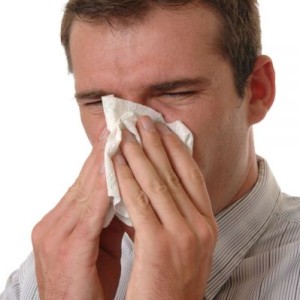ALLERGY
No Need to Suffer, Get Tested
2730 Union Ave, Suite B
San Jose, CA 95124
(408) 684-8600
Join experienced doctor Dr. Neema Malhotra to discuss testing, medications, immunotherapy, holistic approaches, and more. Get rid of sneezing, coughing, itchy eyes, and more. Start your journey to allergy-free life today.
What are Allergies?
Allergies affect as many as 30% of adults and 40% of children. Reactions to allergies can cause coughing, sneezing, itchy eyes, a runny nose, and a scratchy throat. In severe cases, allergic reactions can include rashes, hives, low blood pressure, breathing trouble, asthma attacks, and even death.
Allergies Diagnosis and Treatments
At USCIS Clinic, San Jose, we separate allergy treatment into four branches:
Testing, Avoidance, Medication, and Immunotherapy (allergy shots).
It often takes a combination of avoidance of the cause of allergy, medications, immunotherapy, and even a holistic approach to providing a resolution of your problems. After a consult with experienced physician Dr. Neema Malhotra, she will discuss testing and treatment options.
Most treatment focuses on medications – those that treat symptoms, like Allegra and Zyrtec, or those that prevent symptoms, like Flonase and Nasonex. Newer medications like Allermist, a nasal steroid, and Patanase, a nasal antihistamine, or Xyzal, a second-generation version of Zyrtec, aren’t much stronger. Even with ideal combinations of these medications and fine-tuning of the dosages, inadequate relief is still inadequate relief. Even worse, most medications only treat symptoms, and those symptoms come right back as soon as you stop taking the medicine.
Of all treatment options, shots are the only ones that treat the underlying allergy, working toward a cure. In study after study, allergy shots, when taken for three to five years, continue to provide relief for years after treatment. That’s certainly not true for pills or sprays. Not even for the newest allergy medications.
Testing
What is Allergy Blood Testing?
Blood tests are helpful when it comes to allergy testing. Specific IgE blood testing can help to identify sensitization to allergic triggers in patients, without the need for a skin prick test. Allergy testing can help providers understand how to limit a patient’s risk for another allergic reaction.
Regional Respiratory Testing
ImmunoCap regional respiratory profiles help pinpoint specific allergens in a patient’s local area to help in targeted therapy, and to help identify areas patients should avoid where certain allergens are more prevalent.
Regional test profiles include sensitization testing for mites, epidermal, food, grass, insect, mold, tree, and weeds for our California.
Food Allergy Profile from BioReference
With ImmunoCap Allergen testing done at various labs, healthcare providers can gain the necessary information to develop a patient’s dietary management plan and improve his or her quality of life. The multi-component food allergy profile can assess whether a patient reacts to common food allergies, including almond, cashew, hazelnut, walnut, peanut, sesame, codfish, salmon, tuna, scallop, shrimp, milk, soybean, and wheat.
Egg, Milk, and Peanut Allergy Testing
In addition to abnormalities in the general food allergy profile, component testing looks at specific egg, milk, and nut proteins to determine how likely a patient is to react to baked or raw products.
- Egg: 70% of children with egg allergy do not react to baked eggs. Egg Allergen Component testing can help healthcare providers determine the likelihood of a reaction to products baked with eggs, such as muffins or cookies, as well as inform the likelihood of allergy persistence.
- Milk: 75% of children with cow’s milk allergy do not react to baked milk. Milk Allergen Component testing can help healthcare providers determine the likelihood of a reaction to baked goods, such as cookies or cheese pizza, as well as the likelihood of allergy persistence.
- Peanut: 77.6% of patients sensitized to peanuts may not be at risk for a systemic reaction. Peanut Allergen Component testing can help healthcare providers define the likelihood of a systemic anaphylactic reaction and determine the need for prescribed precautions.
Allergy Treatments
Avoidance
One of the easiest remedies, avoidance, or prevention, involves removing or decreasing exposure to the cause of the symptoms from your life. For example, a particular food can be avoided, or a pet can be removed from the home or kept away from sleeping areas. If one is allergic to dust mites, a common allergen in this part of the country, we often recommend pillow and/or mattress covers that are impermeable to dust mite antigen penetration.
Some causes of symptoms, such as pollen, molds, and dust mites, cannot be eliminated. Exposure can be reduced, however, by environmental control measures prescribed by your allergist. Remember, you don’t need 100% avoidance to improve–just enough to get you feeling better.
Medications
Although avoidance is always the primary recommendation, more treatment is usually advised. Medications frequently are used to decrease allergy symptoms and return patients to full health. Recent advances in medications for allergies, asthma, and other allergic diseases have been phenomenal. Improvements in drugs have eliminated most of the side effects associated with them just a few years ago. Your specialist at Silicon Valley Medical Clinic will be able to suggest the latest safe, and most effective, medications for treating your allergic illness. Medications are generally divided up into two categories–those to prevent your symptoms, and those to treat your symptoms. It is reasonable to infer that prevention medications must be used regularly to be the most effective. Prescription medications can be very expensive; however, we will work with you and your insurance company to find the most effective therapeutic alternatives covered by your plan.
Immunotherapy (Allergy Shots)
Although medications may reduce or prevent symptoms, only a regimen of allergy shots can alter or fix a patient’s allergic response. Allergy shots have been used by the medical profession since early 1900. This time-tested therapy decreases a patient’s sensitivity by introducing increasingly larger doses of the substances to which the patient is allergic. The treatment is a method for increasing the allergic patient’s natural resistance to the things that are triggering the allergic reactions.
Education
We work with you by taking history, lifestyle, pets, environment and your food. Education for the patient (and their family/school nurse/coach) is key to teaching how to identify and treat symptoms when they first start. With appropriate treatment, the vast majority of allergy and asthma patients can continue to enjoy any activity they choose, without limitations or loss of productivity.
In most cases, allergies are mild, not life-threatening, and require few food restrictions, making them easier to live with and treat. Dr. Malhotra will confirm if ImmunoCap Allergy Testing is right for you.
Contact Us
(408) 684-8600















